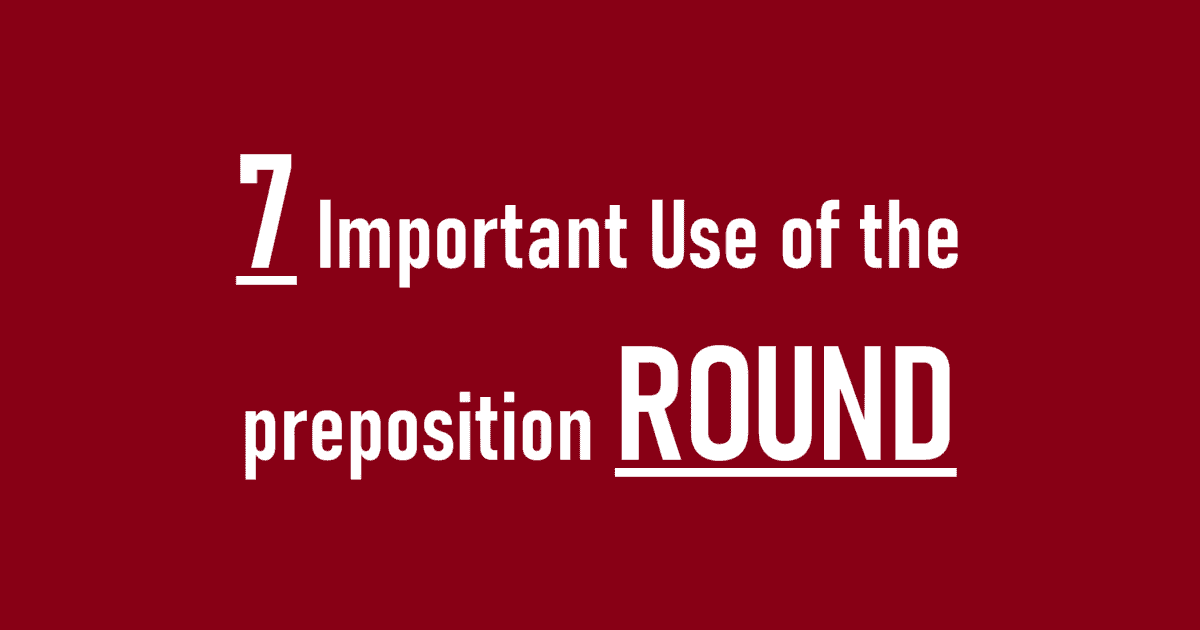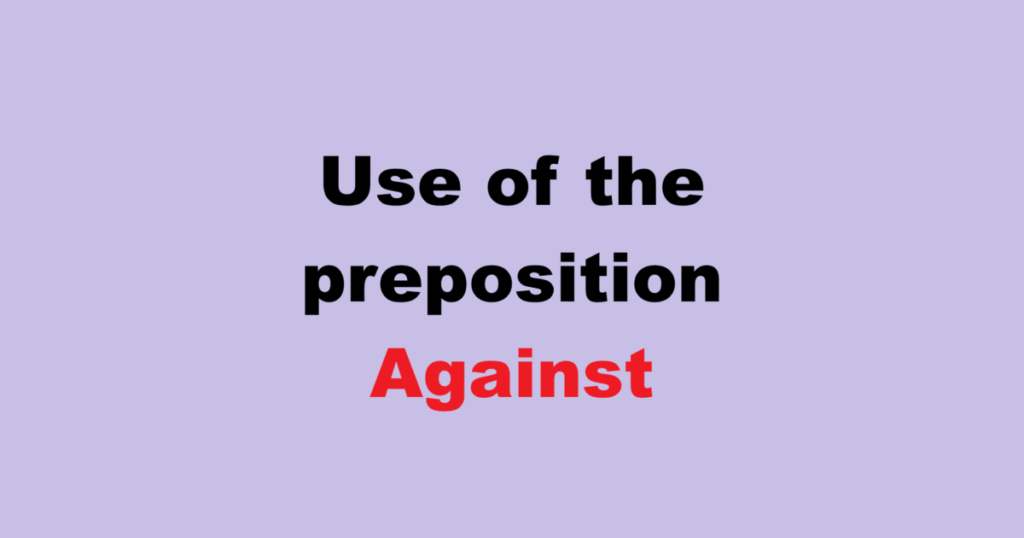Use of the preposition ROUND. The English language, in all its glorious complexity, is rife with prepositions that can be both incredibly useful and frustratingly ambiguous. Among these is “round,” a versatile little word that signifies encirclement, approximation, and a whole host of other concepts. While often interchangeable with “around,” “round” possesses subtle distinctions and usage patterns that warrant closer examination. This post aims to provide a comprehensive guide to understanding and utilizing the preposition “round” correctly and confidently.
Use of the preposition ROUND
I. Round vs. Around: A Case of Context and Convention
The most common point of confusion surrounding “round” is its relationship with “around.” In many contexts, they are indeed synonymous. Both can indicate movement, position, or location in a circular or encircling manner. For example:
- “He walked round the house.” = “He walked around the house.”
- “There are trees round the garden.” = “There are trees around the garden.”
However, the interchangeable nature isn’t absolute. Several factors influence the choice between “round” and “around,” including regional variations, stylistic preferences, and subtle differences in emphasis.
- Regional Differences: “Round” is more commonly used in British English, while “around” is more prevalent in American English. While both forms are generally understood in either region, a native speaker is more likely to use the one that feels natural based on their geographic background.
- Stylistic Preference: Some writers and speakers simply prefer one over the other. There’s no inherently “better” option when both are grammatically correct and convey the intended meaning.
- Subtle Nuances in Meaning: While often interchangeable, there are instances where “round” subtly emphasizes circularity or completeness. Consider these examples:
- “They sat around the table, discussing plans.” (Focuses on the general vicinity and interaction at the table.)
- “They sat round the table, holding hands.” (Implies a more complete circle, suggesting unity and connection.)
II. Diverse Meanings and Applications of “Round”
Beyond the simple “around” substitution, “round” boasts a diverse range of meanings and applications. Understanding these different facets is crucial for mastering its usage.
A. Encirclement and Physical Location:
This is perhaps the most common and straightforward use of “round.” It indicates that something is positioned or moving in a circular path or encircling another object.
- “The Earth goes round the Sun.”
- “They built a fence round the property.”
- “The waiter walked round the tables taking orders.”
B. Movement and Traversal:
“Round” can also denote movement that bypasses or avoids an obstacle.
- “We drove round the traffic jam.”
- “The river flows round the mountain.”
- “They climbed round the rock face.”
C. Approximation and Estimation:
“Round” can be used to indicate an approximate quantity or number. This usage is closely related to the verb “to round up” or “to round down.”
- “It cost round fifty dollars.” (Meaning approximately fifty dollars.)
- “There were round a hundred people at the party.”
- “We’ll need round about ten more volunteers.”
D. Distribution and Circulation:
This usage indicates the act of distributing or passing something among a group.
- “I’ll pass the documents round.”
- “They sent the donation jar round.”
- “The news quickly spread round the office.”
E. Stages or Rounds in Activities:
“Round” can refer to a specific stage or phase in a series of activities, often in competitive contexts.
- “We’re in the final round of the competition.”
- “He won the first round by a knockout.”
- “There are several rounds of interviews before a final decision is made.”
F. Turns or Revolutions:
This usage highlights the cyclical nature of an action or process.
- “He gave the steering wheel a round.”
- “Let’s go round again.” (Meaning let’s do it again.)
- “After a few rounds of drinks, the conversation became more lively.”
G. Adjectival Usage:
While primarily a preposition, “round” can also function as an adjective, meaning circular or spherical.
- “a round table”
- “a round face”
- “a round of applause”
III. Common Idiomatic Expressions with “Round”
English is replete with idiomatic expressions that incorporate “round.” Understanding these phrases enhances fluency and comprehension.
- All year round: Throughout the entire year.
- Round the clock: Continuously, 24 hours a day.
- To come round: To regain consciousness or to be persuaded.
- To get round to: To finally find time to do something.
- To mess around: To waste time or to play around.
- To round up: To gather together or to increase to the nearest whole number.
- To turn round: To change direction or opinion.
- To be round the bend: To be crazy or eccentric. (Chiefly British)
IV. Tips for Using “Round” Effectively
- Consider Your Audience: If writing for an American audience, “around” is generally the safer choice in interchangeable contexts. If writing for a British audience, “round” is perfectly acceptable.
- Prioritize Clarity: Always prioritize clarity. If using “round” might lead to ambiguity, opt for a more precise synonym or rephrase the sentence.
- Listen to Native Speakers: Pay attention to how native speakers use “round” in different contexts. This is an invaluable way to internalize the nuances of its usage.
- Don’t Overthink It: In many cases, “round” and “around” are interchangeable. Trust your instincts and choose the word that feels most natural to you.
V. Conclusion
The preposition “round,” while often compared to “around,” offers a rich tapestry of meanings and applications. From indicating physical encirclement to signifying approximation and cyclical actions, “round” plays a vital role in the English language. By understanding its diverse functions, idiomatic expressions, and regional variations, you can confidently and effectively incorporate “round” into your vocabulary and writing, enhancing your overall communication skills. So, go forth and explore the world “round” you, armed with this newfound knowledge!
Read Also,
- Learn all prepositions
- Use of the preposition above
- Use of the preposition about
- What is Religion
- News in Hindi
- Human vs AI
- Very Important Word Lists
>>> Sir Sahil

